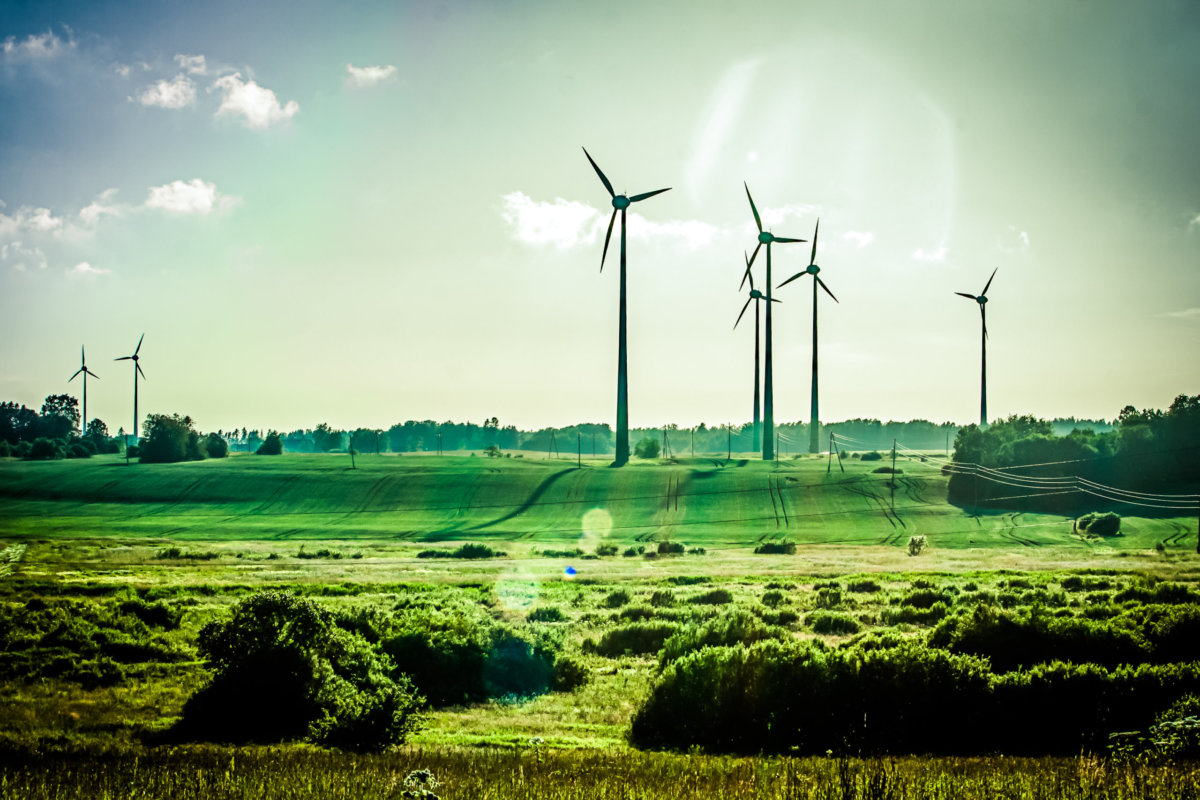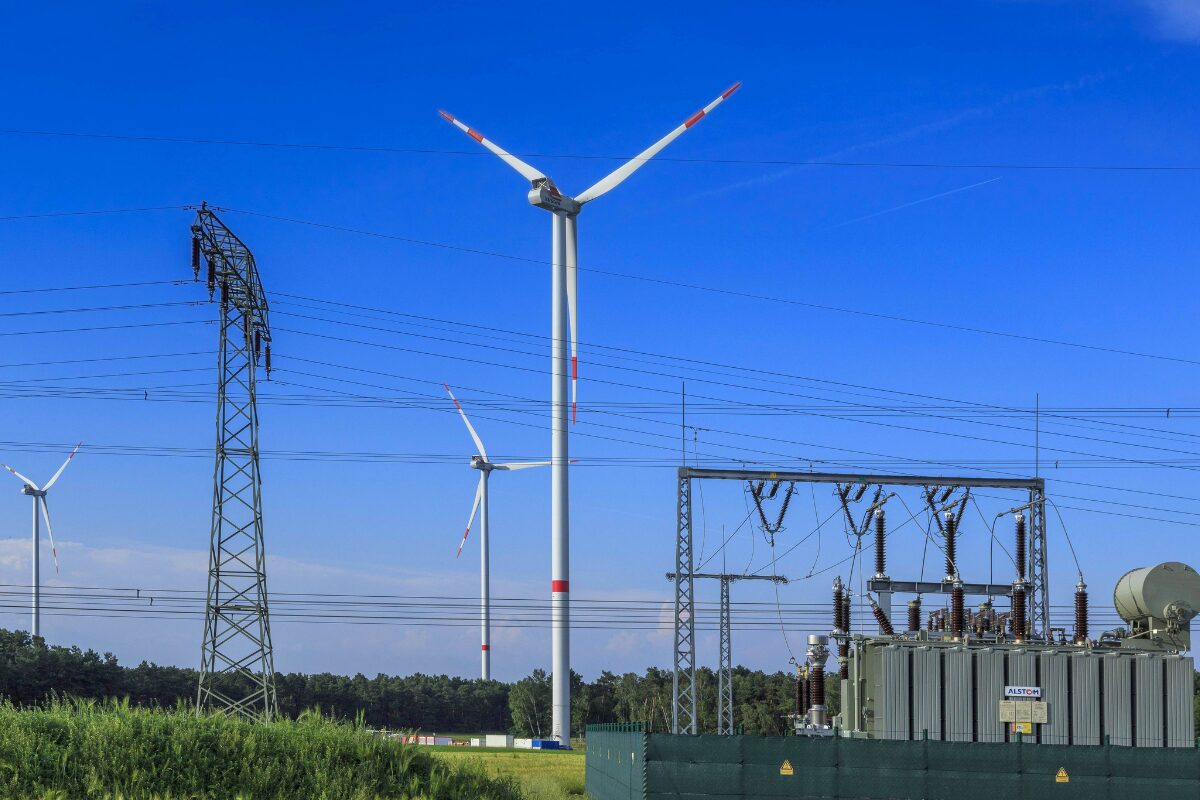Georgia and the European Green Deal

Im Rahmen unseres Projektes „Östliche Partnerschaft Plus“ veröffentlichen wir eine zweite Reihe von Input Papers zum Thema Perspektiven und Prioritäten des European Green Deals (EGD) in der Ukraine, Georgien und Moldau. Die Autoren aus der Region (Nataliya Andrusevych, Manana Kochladze, Iuliana Cantaragiu) analysieren die Rolle der Europäischen Union bei der Unterstützung der Umsetzung des EGDs und formulieren ihre Handlungsempfehlungen an die Entscheidungsträger in Berlin und Brüssel.
By Manana Kochladze, Democratization and Human Rights, CEE Bankwatch Network
The European Green Deal (EGD) will fundamentally change economic and political relations with the EU’s neighbourhood. The Government of Georgia has not made yet any commitments with regard to the EGD.[1][2] The government’s approach to the country’s economic development primarily involved extensive liberalization and deregulation for decades. This changed only with the signature of the EU-Georgia Association Agreement (AA) in 2014. Since then, Georgia has taken a few positive steps in the environmental, energy and climate sector, but environmental protection and climate resilience are still considered to be of secondary priority; economic growth takes top priority.
The current path of economic development and its impact on health and the environment are challenging. The Global Alliance on Health and Pollution has reported that at least 140 out of every 100,000 deaths in Georgia are linked to air pollution, one of the highest rates in Europe.[3] World Bank estimates that the costs of environmental degradation (air pollution, lead exposure, forests, agriculture land degradation, climate change impacts) were equivalent to 15% of Georgia’s GDP in 2018.
Article 29 of Georgia’s Constitution requires the government to ensure the protection of the environmental protection and rational use of natural resources in the interests of current and future generations. The Law on Environmental Protection provides for an environmental planning system to ensure “conditions appropriate for the sustainable development of the country”. The law requires the development of a sustainable development strategy for the country. This requirement has yet to be met, as have those for a five-year national environmental action plan and plans and policy documents for individual areas. The social-economic development strategy “Georgia 2020” (2014)[4] acknowledges inefficient use of natural resources and extensive agricultural production, combined with low technological development and innovation level. In 2015, government adopted the a national strategy to meet SDGs by 2030.[5]
The Association Agreement between EU and Georgia and the Association Agendas have fuelled numerous positive changes. The first step was enactment of a new Environmental Assessment Code in line with the nEIA and SEA directives (2018), addressing multiple failures in environmental decision-making on projects and policies during (2007–2017), and reintroducing public participation in decision making. Several other laws and policy documents have also been adopted, including the Waste Code and Waste Management Strategy 0216–2030, the Forest Code (2020), environmental liability legislation (2021), etc. The Third National Environmental Action Program of Georgia (NEAP‑3) 2017–2021,[6] the key policy document in this area, was influenced by the EU-Georgia Association Agreement and United Nations Sustainable Development Goals. However, its implementation is behind schedule both with respect to environmental governance and in key strategic sectors. This is due to ineffective governance and institutional model, inadequate funding, only 0.4% of the state budget was allocated to environmental protection (around 60 million GEL). This was coupled with constant lobbying on behalf of the business sector to delay or abandon the new environmental regulations. For instance, Georgia is behind schedule in in designated protected Emerald-network sites[7] under the Council of Europe’s Convention on the Conservation of European Wildlife and Natural Habitats (Bern Convention). The country needs to develop a national freshwater strategy due to abundant hydropower development plans.[8]
Georgia has been a full member of the European Energy Community since 2016. The adoption of the Law on Energy and Water Supply in line with the Third Energy Package (2019) was a breakthrough for further energy reforms. Renewable energy legislation was adopted in 2019 is in line with the EU’s 2009 renewables directive. Legislation on energy efficiency adopted in 2020 twill enter into force after 2022. The transposition of the Large Combustion Plants Directive into Georgian law and the preparation of the Energy and Climate Action Plan (NECP) have been delayed. As the Clean Energy Package will be integrated into the Energy Community Treaty by the end of 2021, the ECT Secretariat has started to assist with the transposition and implementation of energy reforms, including the Clean Energy Package.[9]
Georgia has no energy sector development strategy or action plan for 2030 aimed at decoupling energy use and economic growth. Unsustainable electricity consumption and the country’s dependence on imported fossil fuels (70–75% of primary energy consumption) are not stressed in any strategy document. Sparsely available policy documents[10] promote increased energy consumption and the building of new generation plants, including the large hydropower plants that the vast majority of the public oppose. Meanwhile, cryptocurrency mining, which can be done at next to no cost thanks to low rates charged for electricity, is negatively affecting both on the energy balance and on citizens’ lives in Abkhazia and Svanetia[11]. It is estimated that cryptocurrency accounts for at least 15% of Georgia’s total power load.[12] According to USAID, “Current and strategic decisions of the energy sector are not made on the basis of relevant and sufficient information analysis and research. There is no proper system and procedures in place for providing expert research and professional support for decision-making”.[13]
In April 2021, the Government of Georgia approved an updated nationally determined contribution (NDC)[14] under the UNFCCC and an implementation tool for it. The NDC includes unconditional (35%) and conditional (50–57%) mitigation targets for the reduction of GHG emissions by 2030 compared to 1990 levels. It defines targets for a number of sectors (transport, construction, energy generation and transmission, agriculture, industry, waste management and forestry). The National Adaptation action plan will be elaborated with the support of the Green Climate Fund.
The transport sector represents the biggest emitter and was responsible at least for 24% of GHG emissions (2015). The updated NDC predicts that emissions would rise up to 71% under the baseline scenario by 2030, with planned reduction of 15%. The country does not have “a single entity with responsibility for overarching national transport sector strategy and policy.”[15] This has resulted in the allocation of a disproportionate amount to road infrastructure, with severe impacts on local communities, reducing their incomes and forcing involuntary resettlement, and on the environment, including protected areas.
Despite promises to the contrary, no green economy policy, green economy strategy 2030 or green economy action plan for 2017–2022[16] were ever adopted. A technical report prepared for use in the development of a green economy strategy that analysed three sectors of economy – construction, agriculture and tourism – pointed out the potential for such a strategy to generate significant savings and additional economic and environmental benefits, including job creation.[17] Activity in this area is mainly supported by international donors, including the EU.[18]
The EGD has the potential to completely eliminate the country’s reluctance to update existing economic models and to define new perspectives for Georgia’s development. This would require the relevant guidance and skills support coupled with extensive awareness raising, transparency and public involvement in decision making to build the ownership and ensure a results-oriented approach. Georgia is experiencing stagnation in the development of democracy and its economy [19] due to a political crisis[20] combined with Covid-19 pandemic. In this situation, EGD could provide a much-needed stimulus for further development.
The party currently in power is in the process of preparing a national plan for Georgia development to 2030. If developed with wider public participation and based on the “grow back better and greener” principle in line with EU legislation and the EGD, the plan may be able to serve as recovery tool to address immediate shocks and ensure the sustainable development of the country. The EGD together with Association Agreement provides new opportunities for Georgia to make progress towards sustainability goals and to access potential financial sources, as well as further Georgia’s ambitions for closer integration with EU.
Recommendations:
- The EAP summit in 2021 should spotlight the EGD as a major topic, and the EU should continue to emphasize this topic on multilateral and bilateral levels with the EaP countries to encourage co-ownership and engagement on their part.
- The Green Deal Roadmap and Strategy should be elaborated with the involvement of all stakeholders and ensure commitments in environment and climate sector in line with a long-term vision for the areas of energy, industry, trade, agriculture and transport.
- The new environmental action plan to be developed should be geared towards Georgia’s transition to a climate-neutral, resource-efficient clean and circular economy in line with 2030 targets of the European Green Deal.
- The capacities of decision makers should be enhanced to promote the implementation of already existing environmental and climate legislation, as well as EDG integration into different economic sectors.
- Ensure sustainability of the projects funded through EU-related financial streams, including those of international financial institutions (e.g. EIB, EBRD and etc) and ECAs (e.g. KFW, ADFB , SACE and others).
- The EU Taxonomy Regulation, establishing the framework for the EU taxonomy of sustainable activities, should be widely promoted and encouraged vis-à-vis the EaP countries.
- Promote EGD integration into different areas at different levels (cooperation among parliaments, local authorities, development of civil society, academia, cross-border cooperation. etc.).
- Country strategies and action plans for zero pollution and zero emission systems should be defined for the agriculture, energy and transport sectors.
- Provide support for and engage in systematic transfer of knowhow – new technologies, innovative project models, internships and trainings for decision makers, experts, CSOs, businesses.
[1] 31 May 2021 on joint hearing of the Parliamentary Committees on European Integration and Environmental Protection and Natural Resources was mentioned that there are ongoing negotiations with the EU for Green Deal roadmap and strategy development. The statement does not receive any follow up.
[2] The European Green Deal and its Significance for Georgia, Ekaterine Mikadze, February 2021,
[3] GAPH, 2019, 2019 Pollution and Health Metrics: Global, Regional and Country Analysis,
[4] Social-economic Development Strategy of Georgia “GEORGIA 2020”, Government of Georgia 2014,
[5] Sustainable Development Goals National Document.pdf
[7] Network analogous to Natura 2000 outside of the EU.
[8] https://rm.coe.int/files04e-2020-georgia-svaneti1-candidate-emerald-site-nenskra-govt-rep/16809ce010
[9] New phase of EU4Energy Governance project launched in Georgia, Moldova and Ukraine
[10] E.g. Georgia’s electricity networks development plan 2021–2031
[11]Despite Bitcoin’s Dive, a Former Soviet Republic Is Still Betting Big , New York Times, 2019, November
[12] Georgia 2020 Energy Policy review, IEA
[13] Energy Policy Concept of Georgia , November 2020, USAID
[14] Georgia Nationally determined contribution 2021,
[15] Climate Decarbonization Scenarios for Georgia Transport Sector, Thomas Day, Sofia Gonzales-Zuñiga, Swithin Lui, New Climate Institute, January 2021
[16] Ministry of Economy and Sustainable Development, 2017, Green Economy Policy and Strategy,
[17] Supporting the Development of a Green Growth Economic Strategy in Georgia, Technical Report, 2018, EaP Green
[18] EU-funded Projects Aiming at the Main Goal and Principles of the Green Deal in Georgia
[19] https://freedomhouse.org/country/georgia/nations-transit/2020
[20]Defusing Georgia’s Political Crisis: An EU Foreign Policy Success? May 2021
Gefördert durch:

![]()
Hat Ihnen unser Beitrag gefallen? Dann spenden Sie doch einfach und bequem über unser Spendentool. Sie unterstützen damit die publizistische Arbeit von LibMod.
Spenden mit Bankeinzug
Spenden mit PayPal
Wir sind als gemeinnützig anerkannt, entsprechend sind Spenden steuerlich absetzbar. Für eine Spendenbescheinigung (nötig bei einem Betrag über 200 EUR), senden Sie Ihre Adressdaten bitte an finanzen@libmod.de
Verwandte Themen
Newsletter bestellen
Mit dem LibMod-Newsletter erhalten Sie regelmäßig Neuigkeiten zu unseren Themen in Ihr Postfach.










